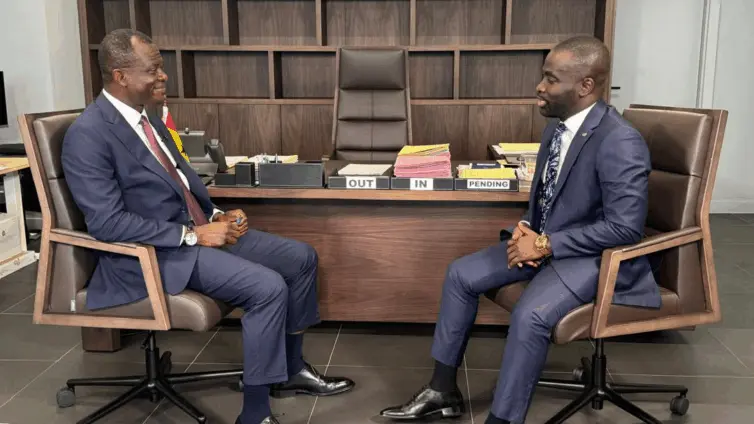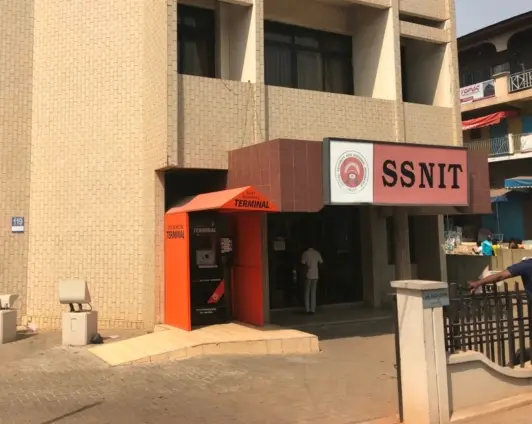For decades, the Ghanaian Cedi has been synonymous with volatility, its fluctuations sending ripples of uncertainty through the nation’s economy. But recently, a different narrative has begun to emerge. The Cedi has experienced a period of relative stability, prompting questions about the underlying factors and the sustainability of this trend. According to Dr. Mumuni Zakaria, First Deputy Governor of the Bank of Ghana (BoG), the central bank’s strategy is key. “The central bank is not using up reserves to support the cedi,” he stated, insisting that “the recent gains are not artificial.”
This article delves into the Bank of Ghana’s approach to maintaining Cedi stability. It examines the key pillars of this strategy, addressing concerns about the artificial inflation of the currency’s value, and highlighting the policies aimed at bolstering the Ghana economy.
Skepticism initially met the Cedi’s rally. Some market observers believed that the Bank of Ghana (BoG) was artificially propping up the currency by depleting its foreign exchange reserves. However, Dr. Zakaria dismissed these concerns, arguing that such tactics would be quickly exposed by astute market players. “Unfortunately, if this were the case, market players who are very smart would have seen through it,” he said. “The rally would have been short-lived. They wouldn’t trust you.” Instead, he attributed the Cedi’s strength to growing market confidence, underpinned by sound economic policies and a commitment to long-term stability.
A crucial element of this confidence is the organic accumulation of reserves by the central bank. Dr. Zakaria emphasized that the BoG has been building its reserves at a faster pace than initially projected. “We are even accumulating reserves much, much faster than what has been expected,” he said. “And that is why the market really thinks this can be sustained.” These reserves, he clarified, are not the result of increased borrowing but rather “organically accumulated reserves,” further solidifying their credibility and sustainability.
Ghana’s economic performance has exceeded expectations, particularly in relation to its IMF targets. According to Dr. Zakaria, the nation’s reserves are significantly above the benchmarks set by the international financial institution. “The IMF program set a target of three months of import cover. We are now at 3.7 months using IMF metrics,” he said. “If you include petroleum funds, we’re around 4.7 months. That’s quite a lot.”
Furthermore, the Bank of Ghana has implemented innovative policies to manage market demand while simultaneously building its reserves. Dr. Zakaria explained, “We have devised very strategic ways of meeting market demand while still accumulating external buffers. What we are doing now places more weight on building reserves than on direct market support.” This approach ensures that the Cedi’s stability is not solely reliant on direct intervention but is also supported by a growing buffer of external reserves.
Several key factors have contributed to the recent Cedi strength. The Staff Level Agreement with the IMF has played a pivotal role, sending a strong signal to global markets. As Dr. Zakaria noted, “We’ve had a Staff Level Agreement with the IMF. That sent a strong message globally. It means things are changing.” This agreement has bolstered investor confidence and unlocked access to crucial financial support.
Disinflation and fiscal consolidation are also playing a significant role. “Inflation dropped from nearly 24% to 21.2%. That’s progress,” Dr. Zakaria pointed out. “Fiscal consolidation is also taking shape. Public sector borrowing has slowed sharply compared to last year.” These positive trends reflect the government’s commitment to responsible economic management and are contributing to a more stable macroeconomic environment, which in turn supports the Cedi.
Liquidity management by the Bank of Ghana is another crucial element. The central bank is actively managing the amount of Cedi in circulation to prevent excessive volatility. “We’ve sterilised three times more than last year,” Dr. Zakaria explained. “So we’re keeping cedi liquidity tight while still meeting forex demand.” This proactive approach helps to maintain a balance between supply and demand, further contributing to Cedi stability.
At the heart of the Bank of Ghana’s message is a commitment to building confidence rather than resorting to short-term, unsustainable measures. “We are not intervening recklessly,” Dr. Zakaria emphasized. “We’re building confidence, not burning reserves.” This approach underscores the central bank’s focus on long-term stability and its determination to avoid the boom-and-bust cycles that have plagued the Cedi in the past.
Dr. Zakaria insists that the current Cedi stability is not a fleeting phenomenon. “This is not smoke and mirrors,” he said. “This is real. And we intend to sustain it.” This commitment to a sustainable approach signals a shift in the Bank of Ghana’s strategy and a determination to create a more stable and predictable economic environment for the Ghanaian economy.
In conclusion, the Cedi’s recent stability is attributable to a multifaceted strategy implemented by the Bank of Ghana. This strategy prioritizes the accumulation of reserves, fosters confidence in the market, and is supported by positive developments such as the IMF agreement, disinflation, and fiscal consolidation. By focusing on sustainable practices rather than artificial interventions, the BoG aims to create a lasting foundation for Cedi stability, which in turn can have a positive impact on the Ghanaian economy.
Image Source: MYJOYONLINE





















